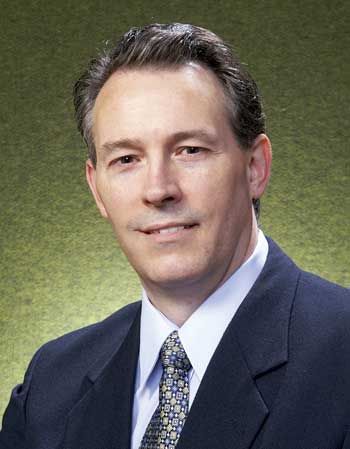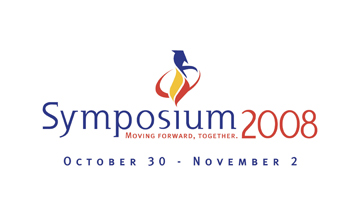
Dr. Jeremy Mills, Chair, Symposium2008
At Symposium 2008, delegates will discover together what makes the Army successful
Interview with Dr. Jeremy Mills
From October 30 to November 2, delegates from across the Canada and Bermuda Territory will convene for Symposium 2008 at Jackson’s Point Conference Centre. Salvationist spoke with symposium chair Dr. Jeremy Mills to learn more about the vision and process for this crucial event in the life of the Army.
What is the goal of Symposium 2008?
In 2005, when delegates met for the last territorial symposium, five key themes emerged: identity, interacting with contemporary culture, discipleship and spiritual growth, authority and formal relationships, and leadership and organizational change. This year’s mandate is simple: go deeper on those five main conversations.
The process we use to accomplish that, however, is going to be different. One of our goals is to establish broad-based consultation, so that every Salvationist in the country will be able to participate in the discussion. Delegates will be used in a more intentional way to get out and talk to Salvationists. We will also use the Salvationist.ca website to facilitate conversations.
Our main task is to identify the positive, creative core of The Salvation Army. The purpose is not to ask “What’s wrong? What do we need to fix?†but rather “What are we good at? Where are our moments of brilliance? How can we make those moments more frequent?†The outcome will be propositional statements that everyone will own. The goal is not to make recommendations and leave them with the leadership to act, but to see the mission as something we are all responsible for living.
What do you mean by the “positive, creative core�
The Bible urges us to look at the positive (see Philippians 4:8), and that’s what we want to do at Symposium 2008. Every organization, including The Salvation Army, has something that makes it work. Rather than focusing on deficiencies, we want to emphasize our successes. Rather than trying to fix what’s broken, we want to build on what’s working. Rather than dwelling on past problems, we want to envision the future.
To do this, we need to be inclusive. This means delegates will conduct structured interviews with as many Salvationists as possible. Questions might include: “What are your best working experiences? Tell me about a time when you felt most productive. What gives you hope about the organization?†This process of discovery will give delegates a sense of the issues in their broader context. Each delegate must also find five people who will commit to pray for them and for the symposium throughout this process.
What about corps who cannot send delegates?
In addition to delegates, we are also inviting “partners†to contribute to the conversation by conducting interviews. There may be corps where four or five members say, “We want to have our voices heard.†All they have to do is nominate a partner and the symposium planning committee will provide them with the material to conduct the interviews.
The partners will then be full participants in the web-based discussion, both divisionally and territorially. During the week of the symposium, we will report the developments of the symposium on Salvationist.ca, so that partners can log on and find out what’s going on.
Through a promotional video, the territorial commander, chief secretary and I will be appealing directly to Salvationists to become involved in the process-either to consider being a delegate, a partner or an interviewee. We’re hoping to maximize engagement of people prior to the symposium.
When will this take place?
The local conversations will be conducted throughout the summer months. By September, delegates and partners will report their findings through a web-based discussion forum, summarized under the five key themes. We will then provide an opportunity for divisions to have their own internal discussions online. Two or three weeks prior to the symposium, the discussions will be opened for all delegates and partners.
At the end of the symposium, we want to have something tangible. We will be designing propositional statements, not as a “pie in the sky†wish list, but as mission objectives under each of the five themes. These statements will be something for which we all take ownership and responsibility. Each proposition will be accompanied by a prayer that supports this vision and moves us forward.
What effect will the symposium have?
At the end of this symposium, we won’t go home and say, “There it is. I’ve given my opinion.†Rather, we’ll go home with a sense of “This is what we have to do in my corps and community. I have to share the vision with others and take ownership.â€
Part of the symposium will involve dreaming of a better future: If you woke up tomorrow and everything worked perfectly, what would The Salvation Army look like? We want people to begin to dream about what we can accomplish as a church. What is God calling us to be?
Dr. Jeremy Mills is a lifelong Salvationist who, along with his wife, Abby, and their four children, attends Napanee Corps in the Ontario Central-East Division. Jeremy is a registered psychologist with a practice in forensic and counselling psychology.
Corps information packets are being mailed this week (April 28th, 2008). Ask your corps officer for more information.
More information about the Symposium 2008
